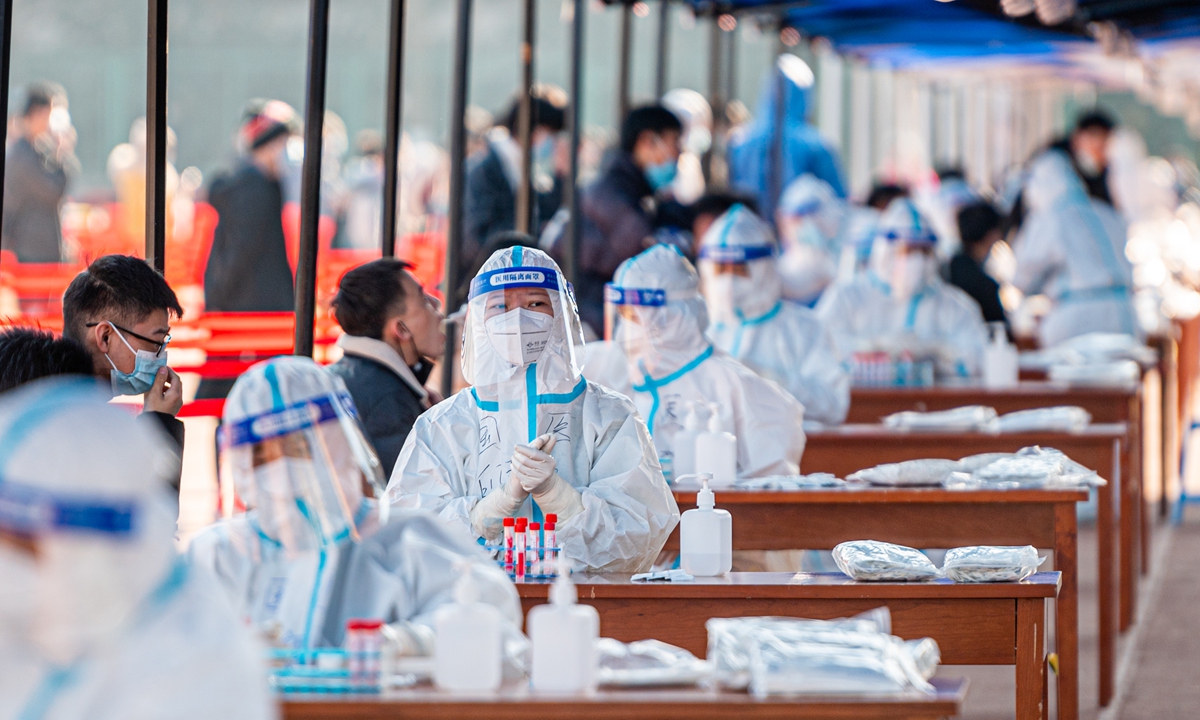
Medical staff conduct nucleic acid tests at the Northwestern Polytechnical University in Xi'an, Northwest China's Shaanxi Province on December 21, 2021. Photo: VCG
Northwestern China's city Xi'an is fighting China's severest COVID-19 outbreak since Wuhan's in early 2020 with more than 1,500 people infected, but experts said that the inflection point is still yet to occur.
On Sunday, Xi'an, capital of Shaanxi Province, announced that two senior Party officials from the city's Yanta district had been removed from their posts, and a deputy mayor concurrently serving as district Party chief to strengthen local anti-virus work, local media reported.
Xi'an is fighting a severe COVID-19 outbreak. As of Saturday, Since Dec 9, Xi'an has reported a total of 1,573 local confirmed COVID-19 cases, local authorities announced on Sunday.
To date, eight people have been cured, while there are three critical cases and 10 severe cases. Yanta was the site of 61 out of Xi'an's 122 newly confirmed cases on Saturday.
However, the origin of the outbreak in Xi'an, and when the virus began to spread and how it has been circulating around the city still remain unknown.
"Currently, it is still not the time to see inflection point of Xi'an's outbreak," Wang Guangfa, a respiratory expert at Peking University First Hospital, told the Global Times on Sunday night. "Because we have not seen the significant decrease in number of newly reported cases yet."
The daily number of newly reported cases in Xi'an has surpassed 100 over the past eight days.
Medical authorities in Xi'an on Sunday said at a press conference that the city's outbreak is still at an "intensive" stage.
Wang noted that it is very important to see the proportion of confirmed cases detected from the group of people outside the quarantined or controlled groups, which could suggest if there are still blind spots for virus prevention or other transmission chains.
Xi'an's outbreak has seen a large number of infections from the beginning, which might suggest the virus had been spread in the city for a while. "We could learn a lesson on the management and technology of virus prevention work from Xi'an's case," Wang said.
Wang said that now many people in China have been fully vaccinated, so symptoms might not be very obvious and some cases were not detected in time. "Therefore, other regions in China should enhance prevention and control of high-risk groups."




